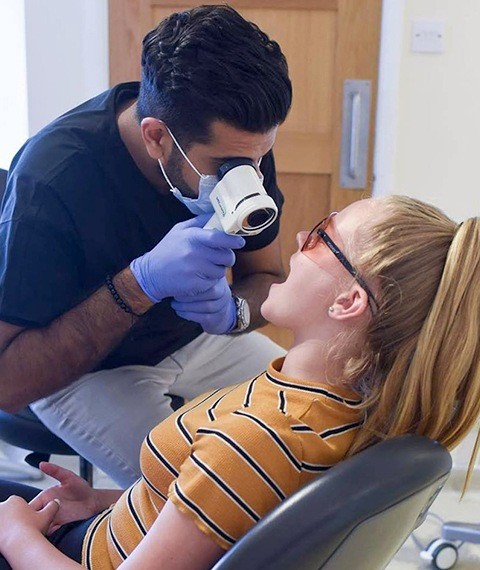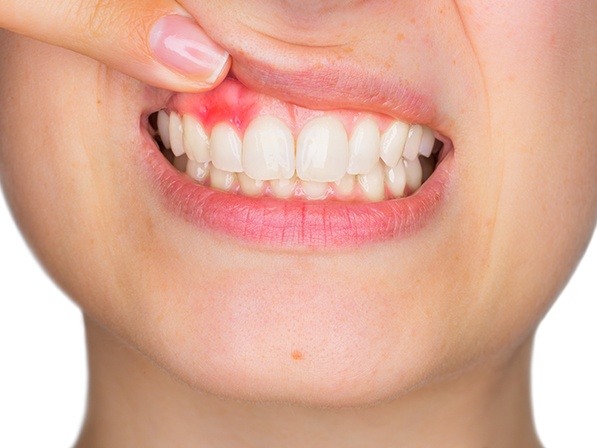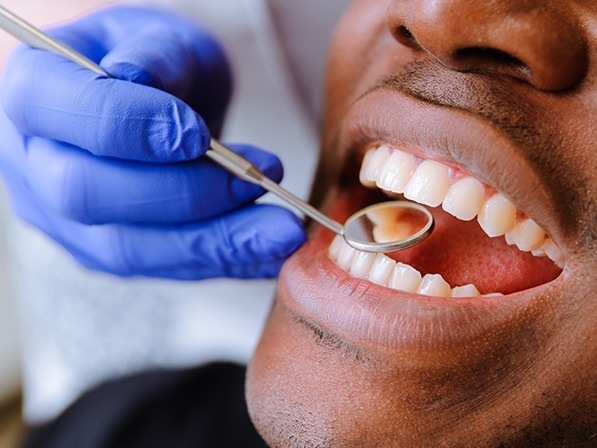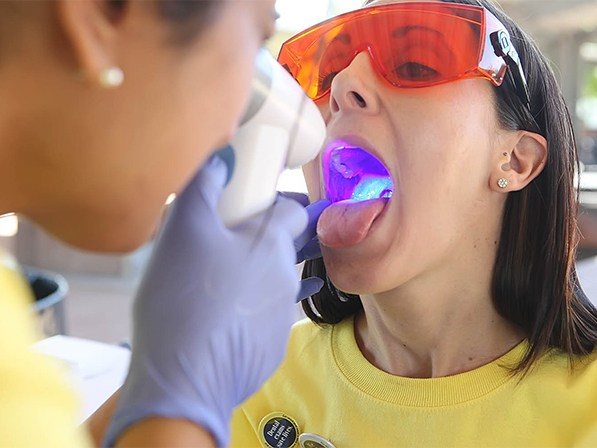Oral Pathology – Dallas, TX
A Watchful Eye for a Healthy Mouth
Most dentists will perform an annual oral screening exam at your routine dental checkup appointment. This examination is designed to detect any abnormalities in the oral soft tissues. All of your oral soft tissues should be smooth and pink. If your dentist detects an area that is discolored, raised, or otherwise abnormal, they will refer you to Texas Wisdom Teeth and Dental Implants for oral pathology in Dallas, TX, which will include a thorough examination and biopsy of oral tissue.
Sometimes, cysts in the jaws and other abnormalities are visible on X-rays. If your dentist finds an unusual formation or a cyst present in your panoramic X-ray, they will refer you to Texas Wisdom Teeth and Dental Implants for evaluation and a biopsy of the jawbone.

Why Choose Texas Wisdom Teeth and Dental Implants for Oral Pathology?
- Advanced Diagnostic Technology
- Gentle, Experienced Oral Surgeon
- Variety of Services in One Location
Symptoms of Oral Pathology

Not all patients experience symptoms associated with oral pathology such as jaw cysts, tumors or soft tissue growths. Many patients become aware of the abnormal tissue only through their annual oral screening exam. When a patient is aware of the problem, some of the most common symptoms include:
- An abnormal growth on the oral soft tissue
- Mouth sores or blisters
- Jaw pain
- Jaw swelling
- Discoloration of oral tissue
Oral Cancer

Do you notice a white spot on your gums? If you are referred to Texas Wisdom Teeth and Dental Implants for an evaluation of an abnormal oral tissue growth, don't panic. You and your dentist may be worried about oral cancer. Be assured that there are many reasons for abnormal oral tissue including jaw cysts, mouth sores, and tissue growths. Luckily, the mouth is one of the easiest places to detect the early signs of oral cancer. Performing a monthly self-examination will help in early detection of problem areas. When detected and treated early, oral cancer can be removed, and the rate of survival is over 90%.
How to perform a self-examination for oral cancer:
- Remove any dentures or objects from the mouth
- Look and feel inside the lips and along the gums
- Inspect the roof of your mouth
- Inspect the inside of your cheeks
- Inspect all surfaces of your tongue
- Feel for lumps or enlarged glands in both sides of the neck and under the lower jaw
Make an appointment with us if you detect any of the following:
- White patches of the oral tissues
- Red patches of the oral tissues
- Red and white patches
- A sore or ulcer that has not healed and bleeds easily
- An abnormal lump or thickening of the oral tissues
- Chronic sore throat or hoarseness
- Difficulty in chewing or swallowing
- A lump or mass in your neck
What to Expect When You Visit Texas Wisdom Teeth and Dental Implants

You will require an examination that will likely include X-rays and a detailed oral examination with or without the use of specialized diagnostic tools such as the VELscope. Dr. Anver will discuss his initial findings with you and suggest a treatment plan. Sometimes, a biopsy of the area will be indicated. In this case, the entire lesion or part of the lesion may be surgically removed and sent to a special oral pathology laboratory to be inspected with the aid of a microscope. The report from the lab will determine the next stage of treatment. If the lesion is malignant, more extensive tests and surgery will be required. Most oral lesions are benign and can be removed without further risk of relapse. However, whenever there is an abnormality, early diagnosis and treatment is the key to a full recovery.
Biopsy of Oral Tissue Procedure

Once you have had a private consultation with our surgeons and a complete examination of your oral tissue and X-rays, they will make a recommendation for treatment. Some patients will require a biopsy or complete removal of the abnormal tissue. Some patients will simply require observation and annual examination in order to screen for changes in the tissue. During examination, our surgeons may use a special light to examine the area. The Velscope light is a specialized tool designed to help detect abnormal tissue changes that may otherwise go unseen during examination. The Velscope exam also helps to define the borders of abnormal tissue growth in order to help assure complete removal of any abnormal tissue during surgery.
Like other oral surgery procedures, most patients are placed under IV general anesthesia for their biopsy procedure. Our surgeons understand that most patients are often apprehensive about having a biopsy procedure performed. Our surgeons and their team are committed to providing a safe, efficient environment while giving you the personal care and attention you deserve.
If you have had a biopsy procedure performed, whether it is for abnormal oral soft tissue, jaw cysts, or dental cysts, you should expect to receive a report with your laboratory results within about 10 days.

